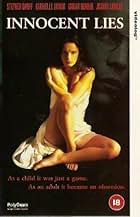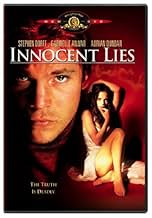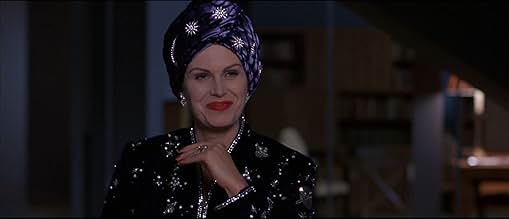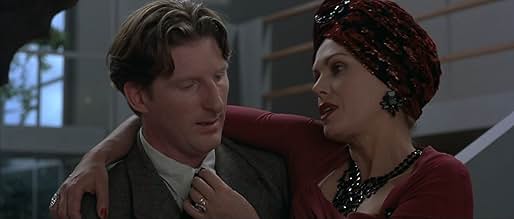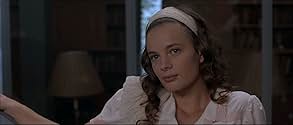IMDb RATING
4.5/10
1.2K
YOUR RATING
British detective investigates friend's death in 1938 French town. Uncovers illicit affair, Nazi ties, aristocratic family's secrets while pursuing the killer's identity.British detective investigates friend's death in 1938 French town. Uncovers illicit affair, Nazi ties, aristocratic family's secrets while pursuing the killer's identity.British detective investigates friend's death in 1938 French town. Uncovers illicit affair, Nazi ties, aristocratic family's secrets while pursuing the killer's identity.
- Director
- Writers
- Stars
- Director
- Writers
- All cast & crew
- Production, box office & more at IMDbPro
4.51.1K
1
2
3
4
5
6
7
8
9
10
Featured reviews
Underwhelming assemblage of what should be strong constituent parts
Stephen Dorff, being characteristically creepy in a suspicious way. A forceful, severe matriarch. Prominent sound effects and a taut, somber original score emphasizing strings. Dark, moody lighting, and crisp cinematography that seems dulled to accentuate shadow. Gabrielle Anwar, directed to at once be beautiful and alluring and also appear helpless and frightened. Whispers, soft voices; dynamic camerawork; cuts to disparate scenes of no readily apparent connection, and without immediate explanation of any, to highlight a sense of detachment, isolation, and foreboding. These are elements that are employed in 'Innocent lies' to inculcate an air of tension and suspense. It's useful for the film to do so because while there's definite mystery about the title - sufficiently strong that even without knowing it beforehand, I recognized a feeling that it was adapted from a book, and one by Agatha Christie at that - its construction doesn't necessarily supply an atmosphere of tension and suspense on its own. In fact, the described added flourishes and the writing and direction at large frankly seem to oppose one another. This movie has problems.
Even the youngest members of the cast generally perform admirably with the material they are given, serving up acting with strong nuance where they can. From a technical standpoint this is well made, and I admire the contributions of the crew behind the scenes. The production design is fetching, and the costume design, and hair and makeup work. These are no substitute, however, for writing and direction that nonetheless makes every scene, line of dialogue, and too much of every performance feel disconnected and less than earnestly meaningful. We rather seem to get a portrait in miniature, one piece at a time, of how director Patrick Dewolf and his collaborators imagines it all should look in a mystery, thriller, drama, and/or film noir - only, the detachment and isolation that is added into the picture kind of extends to each constituent part. 'Innocent lies' is a theoretical patchwork quilt that is very carefully arranged, save for that the stitches between distinct patches are hopelessly loose, and still so thick and heavy that they overshadow what they're supposed to be holding together.
It's so very odd. All the components are here for what should be a rich, engaging, compelling movie, including subtle airs of psychological drama. I can tell how much effort went into it. By some weird set of circumstances I can't fully describe, however, the whole is notably less than the sum of its parts. There's what a movie could or should be, and then there's what it is or the impression it makes - unwieldy, unconvincing, perhaps even contrived. I don't absolutely dislike 'Innocent lies,' and even with nasty themes on the edges including incest and fascism (content warning, folks) it's a narrative that has significant potential. That potential simply isn't borne out.
I expect and hope that there are viewers who watch this and get more out of it than I do. I just think it's too messy and underwhelming to particularly inspire. There are worse films you could watch, but with so many better ones out there, too, there's no overwhelming reason why 'Innocent lies' deserves your time over another.
Even the youngest members of the cast generally perform admirably with the material they are given, serving up acting with strong nuance where they can. From a technical standpoint this is well made, and I admire the contributions of the crew behind the scenes. The production design is fetching, and the costume design, and hair and makeup work. These are no substitute, however, for writing and direction that nonetheless makes every scene, line of dialogue, and too much of every performance feel disconnected and less than earnestly meaningful. We rather seem to get a portrait in miniature, one piece at a time, of how director Patrick Dewolf and his collaborators imagines it all should look in a mystery, thriller, drama, and/or film noir - only, the detachment and isolation that is added into the picture kind of extends to each constituent part. 'Innocent lies' is a theoretical patchwork quilt that is very carefully arranged, save for that the stitches between distinct patches are hopelessly loose, and still so thick and heavy that they overshadow what they're supposed to be holding together.
It's so very odd. All the components are here for what should be a rich, engaging, compelling movie, including subtle airs of psychological drama. I can tell how much effort went into it. By some weird set of circumstances I can't fully describe, however, the whole is notably less than the sum of its parts. There's what a movie could or should be, and then there's what it is or the impression it makes - unwieldy, unconvincing, perhaps even contrived. I don't absolutely dislike 'Innocent lies,' and even with nasty themes on the edges including incest and fascism (content warning, folks) it's a narrative that has significant potential. That potential simply isn't borne out.
I expect and hope that there are viewers who watch this and get more out of it than I do. I just think it's too messy and underwhelming to particularly inspire. There are worse films you could watch, but with so many better ones out there, too, there's no overwhelming reason why 'Innocent lies' deserves your time over another.
Very good movie
Very good movie even though a bit complicated to follow when seen for the first time. It is one of those movies you need to see at least twice to fully appreciate it. The principal actors, first of all Gabrielle Anwar, and Stephen Dorff, are outstanding. Noteworthy is also Patrick Blossier´= s excellent photography.
Having said that I still think with this highly imaginative and original story at his hands Patrick Dewulf could have done more, simply by concentrating on the main characters. There are too many subplots there that are rather superfluous in that they do not contribute to the main story which is intense enough and need not be pepped up.
But still: An excellent movie! I highly recommend it.
Having said that I still think with this highly imaginative and original story at his hands Patrick Dewulf could have done more, simply by concentrating on the main characters. There are too many subplots there that are rather superfluous in that they do not contribute to the main story which is intense enough and need not be pepped up.
But still: An excellent movie! I highly recommend it.
All Style and No Substance
If you like longing glances into the misty distance, unmotivated yet psychotic incest, and daft police work, you'll love this waste of time and film.
The casting director clearly liked a specific "look" of female. As a result, I spent the first half of the movie just trying to keep the female characters straight. Beautiful women are not enough to save this flimsiest of scripts, however.
I feel cheated. I could've been playing solitaire. It would've been equally fulfilling. Clearly, I do not recommend this movie. I was hoping for so much more from a largely watchable cast.
The casting director clearly liked a specific "look" of female. As a result, I spent the first half of the movie just trying to keep the female characters straight. Beautiful women are not enough to save this flimsiest of scripts, however.
I feel cheated. I could've been playing solitaire. It would've been equally fulfilling. Clearly, I do not recommend this movie. I was hoping for so much more from a largely watchable cast.
A family saga.....
....as Visconti showed it in a work such as "la cadeti dei degli" (1969) demands much more than "Innocent lies" 's director can do.Outside the brother and the sister ,and the cop (who is humming twice bribes of the old Irish tune "Carrickfergus" ;the connection with the movie escapes me,I am afraid),the other characters are only silhouettes and you have a feeling that some essential scenes are lacking ,for this a relatively short movie all the same (barely 90 min).Some subplots ,such as the first cop's investigation and suicide are only skimmed over.Ditto for the Jewish wife's scene.As for the incestuous sister's unfortunate fiancé ,he has two or three lines to say and that's it.
The users were harsh when they rated the movie and I can sadly find little fault with that.
The users were harsh when they rated the movie and I can sadly find little fault with that.
Tries WAAAAY Too Hard....
Is it a war movie? Is it film noir? Is it cheap titillation? A deep exploration of complex and controversial relationships? This film cannot decide what it is and so, as another person noted, must require several viewings in order to make sense. Sadly, it is just not compelling enough to warrant multiple viewings - unlike other films that ARE rich with complex themes and artistic vision.
The actors valiantly try to overcome the morass that is the script - but were probably as annoyed as the rest of us at the myriad loose threads that never tie up.
Adrian Dunbar portrays the frustration of someone tempted and confused by things around him - he must be the avatar for the viewer. Stephen Dorff offers another workmanlike portrayal of your friendly neighborhood rebel without a clue. Gabrielle Anwar, who is usually a fine actor, is stuck with a character whose neuroses become tedious and irritating by the end of the film. Joanna Lumley escapes caricature by a false eyelash and looks luminous in the period fashions. The rest of the cast are superfluous at best and annoying distractions at worst, doing nothing to advance the story. They and the plot lines that involve them do not even qualify as decent red herrings.
The cinematography is lovely - very atmospheric and evocative of the era - as are the costumes and staging.
Unfortunately, Dewolf's grasp at Art exceeded his reach and no amount of plot devices can make this murky movie anything more than a mild diversion. Perhaps the fault lies with the editing - which would explain the subplots that disappear and other senseless oddities. A tighter script, a focused plot, and less cheap titillation would have permitted this talented cast to fully engage the viewer in a riveting mystery flick.
The actors valiantly try to overcome the morass that is the script - but were probably as annoyed as the rest of us at the myriad loose threads that never tie up.
Adrian Dunbar portrays the frustration of someone tempted and confused by things around him - he must be the avatar for the viewer. Stephen Dorff offers another workmanlike portrayal of your friendly neighborhood rebel without a clue. Gabrielle Anwar, who is usually a fine actor, is stuck with a character whose neuroses become tedious and irritating by the end of the film. Joanna Lumley escapes caricature by a false eyelash and looks luminous in the period fashions. The rest of the cast are superfluous at best and annoying distractions at worst, doing nothing to advance the story. They and the plot lines that involve them do not even qualify as decent red herrings.
The cinematography is lovely - very atmospheric and evocative of the era - as are the costumes and staging.
Unfortunately, Dewolf's grasp at Art exceeded his reach and no amount of plot devices can make this murky movie anything more than a mild diversion. Perhaps the fault lies with the editing - which would explain the subplots that disappear and other senseless oddities. A tighter script, a focused plot, and less cheap titillation would have permitted this talented cast to fully engage the viewer in a riveting mystery flick.
Did you know
- TriviaThe original script was based on "Towards Zero," a novel by Agatha Christie. When Christie's daughter, Rosalind Hicks, reviewed the screenplay, she demanded that her mother should remain uncredited, and the character names changed. This was because of the inclusion of incest.
- ConnectionsVersion of Marple: Towards Zero (2007)
- SoundtracksQue Reste-t-il de nos Amours ?
Music by Charles Trenet and Léo Chauliac
Lyrics by Charles Trenet
Performed by Charles Trenet
- How long is Innocent Lies?Powered by Alexa
Details
- Runtime
- 1h 28m(88 min)
- Color
- Aspect ratio
- 2.35 : 1
Contribute to this page
Suggest an edit or add missing content

